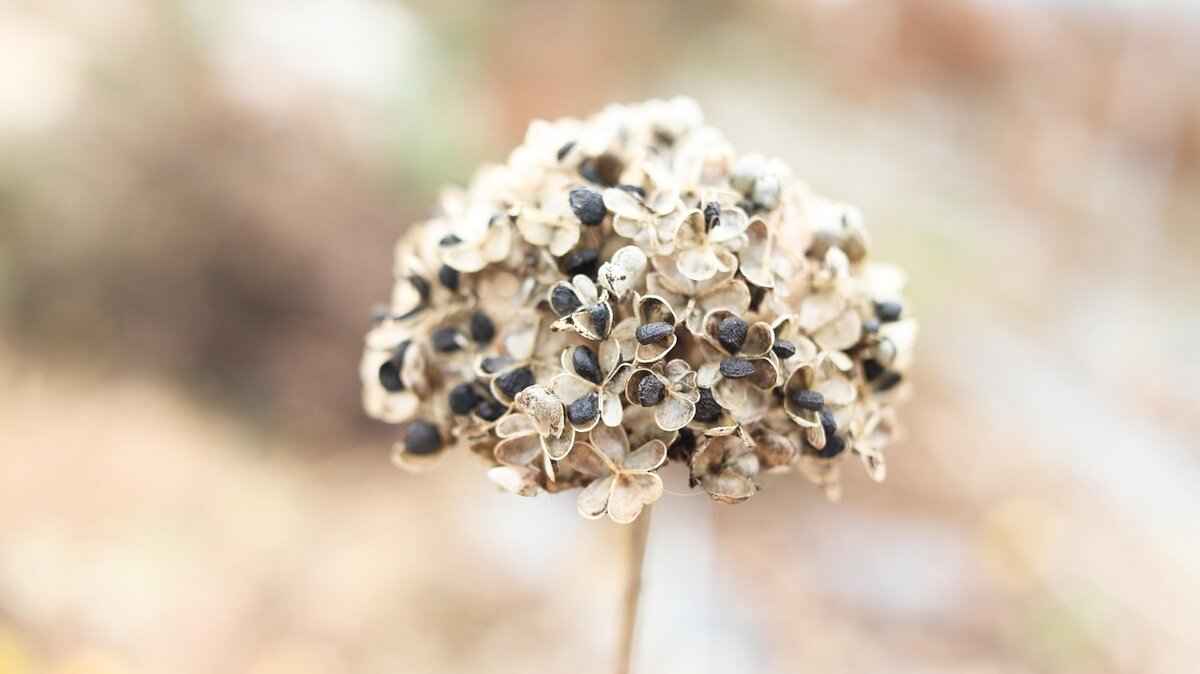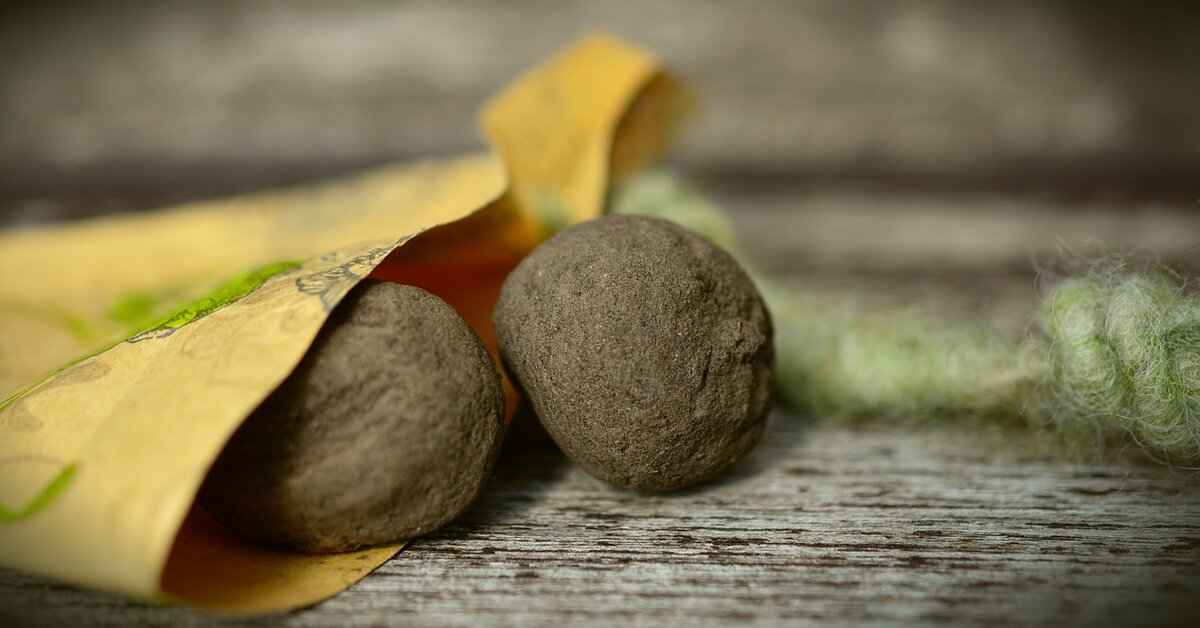This article explores the nutritional profile of chia seeds, highlighting their essential nutrients, health benefits, and practical ways to incorporate them into your diet for optimal wellness.
Chia seeds are tiny black or white seeds derived from the Salvia hispanica plant, which is native to Mexico and Guatemala. Historically, these seeds were a staple food for ancient civilizations such as the Aztecs and Mayans, who valued them for their remarkable health benefits and energy-boosting properties.
Often labeled as a superfood, chia seeds are celebrated for their high concentrations of omega-3 fatty acids, dietary fiber, and antioxidants. This unique combination of nutrients contributes to various health benefits, making them a popular choice among health enthusiasts.
Chia seeds are a nutritional powerhouse, containing:
- Protein: Approximately 4 grams per ounce.
- Fiber: Around 11 grams per ounce, aiding in digestive health.
- Omega-3 Fatty Acids: Rich in alpha-linolenic acid (ALA), crucial for heart health.
- Vitamins and Minerals: Including calcium, magnesium, and phosphorus.
Chia seeds are an excellent source of plant-based protein, providing about 4 grams of protein per ounce. This makes them an ideal choice for vegetarians and vegans looking to boost their protein intake without relying on animal products.
With approximately 11 grams of fiber per ounce, chia seeds significantly contribute to digestive health. Fiber helps regulate bowel movements, promotes a feeling of fullness, and can aid in weight management. Incorporating fiber-rich foods like chia seeds into your diet can also support heart health by lowering cholesterol levels.
Chia seeds are one of the richest plant sources of omega-3 fatty acids, particularly alpha-linolenic acid (ALA). These fatty acids are known for their anti-inflammatory properties and their role in promoting heart health. Regular consumption of omega-3s can lead to improved cardiovascular health and reduced risk of chronic diseases.
The omega-3 fatty acids in chia seeds can help lower cholesterol levels and reduce inflammation, promoting overall heart health. Studies suggest that incorporating chia seeds into your diet may lead to better blood lipid profiles and improved cardiovascular function.
Chia seeds are rich in antioxidants, which help combat oxidative stress in the body. Antioxidants play a crucial role in protecting cells from damage caused by free radicals, potentially contributing to longevity and overall health.
Chia seeds are incredibly versatile and can be easily added to various dishes. Here are some practical tips for incorporating them into your meals:
- Add them to smoothies for a nutritional boost.
- Mix them into yogurt or oatmeal.
- Use them in baking recipes, such as muffins or bread.
- Create chia pudding by soaking them in milk or a milk alternative.
While chia seeds are generally safe for most people, some may experience digestive discomfort if consumed in large quantities. It is recommended to start with a small serving and gradually increase the amount to allow your body to adjust.
To maintain their freshness and nutritional value, store chia seeds in a cool, dry place in an airtight container. Proper storage can help extend their shelf life, allowing you to enjoy their benefits for longer.

What Are Chia Seeds and Where Do They Come From?
Chia seeds are small, nutrient-dense seeds derived from the Salvia hispanica plant, which is indigenous to the regions of Mexico and Guatemala. Historically, these seeds were a staple food for ancient civilizations such as the Aztecs and Mayans, who valued them for their energy-boosting properties and health benefits. Today, chia seeds have gained popularity worldwide as a versatile superfood, recognized for their impressive nutritional profile.
These tiny seeds come in two primary colors: black and white. Despite their size, they are packed with essential nutrients, making them a valuable addition to a balanced diet. Chia seeds are often consumed in various forms, including whole, ground, or as a gel when soaked in water or other liquids. This adaptability allows them to be easily integrated into numerous recipes, from smoothies to baked goods.
One of the reasons chia seeds are considered a superfood is their remarkable nutrient density. They are an excellent source of omega-3 fatty acids, which are crucial for heart health, as well as fiber, which aids in digestion. Additionally, chia seeds are rich in protein, vitamins, and minerals, making them a comprehensive source of nutrition for individuals seeking to enhance their overall health.
- Rich in Omega-3 Fatty Acids: Chia seeds contain alpha-linolenic acid (ALA), a type of omega-3 fatty acid known for its anti-inflammatory properties.
- High Fiber Content: With about 11 grams of fiber per ounce, chia seeds support digestive health and contribute to a feeling of fullness.
- Protein Source: They provide approximately 4 grams of protein per ounce, making them ideal for vegetarians and vegans.
- Antioxidants: Chia seeds are loaded with antioxidants, which help protect the body from oxidative stress.
In addition to their nutritional benefits, chia seeds are incredibly easy to incorporate into your daily meals. You can sprinkle them on yogurt, blend them into smoothies, or add them to oatmeal for an extra boost of nutrition. Their ability to absorb liquid and form a gel-like consistency also makes them a popular ingredient in puddings and desserts.
As a versatile and nutrient-rich food, chia seeds are not only a great addition to your diet but also a sustainable crop that requires minimal resources to grow. Their long shelf life and ease of storage further enhance their appeal, making them a convenient choice for health-conscious individuals.
In summary, chia seeds are a remarkable superfood that offers a plethora of health benefits. Their origins in ancient Mesoamerican cultures highlight their longstanding value as a nutritional powerhouse. By incorporating chia seeds into your diet, you can enjoy their numerous benefits while exploring new and exciting culinary possibilities.

Why Are Chia Seeds Considered a Superfood?
Chia seeds, often hailed as a superfood, have gained immense popularity in recent years due to their remarkable nutritional profile. These tiny seeds, derived from the Salvia hispanica plant, are packed with essential nutrients that offer a plethora of health benefits. In this section, we will explore the key components that contribute to the superfood status of chia seeds.
Chia seeds are a nutritional powerhouse, loaded with omega-3 fatty acids, dietary fiber, protein, and a variety of vitamins and minerals. This unique combination of nutrients plays a significant role in promoting overall health.
- Omega-3 Fatty Acids: Chia seeds are one of the richest plant sources of omega-3 fatty acids, specifically alpha-linolenic acid (ALA). These healthy fats are essential for heart health and brain function.
- Dietary Fiber: With about 11 grams of fiber per ounce, chia seeds are an excellent source of dietary fiber, which aids in digestion and helps maintain a healthy weight.
- Protein: Chia seeds provide approximately 4 grams of protein per ounce, making them a valuable addition to vegetarian and vegan diets.
- Antioxidants: Rich in antioxidants, chia seeds help combat oxidative stress, reducing the risk of chronic diseases.
The omega-3 fatty acids found in chia seeds are crucial for maintaining a healthy heart. Research suggests that these fatty acids can help lower cholesterol levels, reduce inflammation, and improve overall cardiovascular health. By incorporating chia seeds into your diet, you can support your heart and enhance your well-being.
Fiber plays a vital role in digestive health. The high fiber content in chia seeds promotes regular bowel movements and helps prevent constipation. Additionally, fiber contributes to a feeling of fullness, making it easier to manage weight. Including chia seeds in your meals can be a simple yet effective way to boost your fiber intake.
Chia seeds are rich in antioxidants, which help protect the body from free radicals and oxidative stress. These antioxidants can contribute to longevity and overall health by reducing the risk of chronic diseases such as heart disease and cancer. By adding chia seeds to your diet, you can enhance your body’s defense mechanisms.
Incorporating chia seeds into your daily meals is easy and versatile. Here are some practical tips:
- Add chia seeds to your morning smoothie for an extra nutrient boost.
- Sprinkle them on yogurt or oatmeal for added texture and nutrition.
- Use chia seeds as a thickening agent in soups and sauces.
- Make chia pudding by soaking the seeds in milk or a dairy-free alternative overnight.
In conclusion, the nutritional benefits of chia seeds make them a worthy addition to any diet. Their combination of omega-3 fatty acids, fiber, protein, and antioxidants contributes to their status as a superfood. By understanding how to incorporate them into your meals, you can enjoy their numerous health benefits and enhance your overall wellness.

What Nutrients Are Found in Chia Seeds?
Chia seeds have gained immense popularity in recent years, celebrated not only for their culinary versatility but also for their remarkable nutritional profile. These tiny seeds are a powerhouse of essential nutrients that can significantly enhance your overall health. In this section, we will explore the various nutrients found in chia seeds, highlighting their benefits and how they contribute to a balanced diet.
Chia seeds are a rich source of several key nutrients that are vital for maintaining optimal health. Below is a detailed breakdown of the essential components found in these tiny seeds:
- Protein: Chia seeds contain approximately 4 grams of protein per ounce, making them an excellent plant-based protein source. This is particularly beneficial for individuals following vegetarian or vegan diets, as protein is crucial for muscle repair and growth.
- Dietary Fiber: With about 11 grams of fiber per ounce, chia seeds are an exceptional source of dietary fiber. Fiber plays a vital role in digestive health, helping to regulate bowel movements and promote a feeling of fullness, which can aid in weight management.
- Omega-3 Fatty Acids: Chia seeds are one of the richest plant sources of omega-3 fatty acids, specifically alpha-linolenic acid (ALA). Omega-3s are known for their anti-inflammatory properties and are essential for heart health, brain function, and overall wellness.
- Vitamins and Minerals: These seeds are also packed with various vitamins and minerals, including calcium, magnesium, phosphorus, and manganese. These nutrients are important for bone health, energy production, and metabolic processes.
- Antioxidants: Chia seeds are rich in antioxidants, which help combat oxidative stress and protect the body from free radical damage. This can contribute to a lower risk of chronic diseases and promote longevity.
In addition to these nutrients, chia seeds are low in calories, making them an ideal addition to any diet. Their unique ability to absorb water and form a gel-like substance allows them to be used in a variety of recipes, from smoothies to puddings, enhancing both texture and nutritional value.
Including chia seeds in your diet can provide numerous health benefits. Their high fiber content aids in digestion, while the protein and omega-3s support muscle health and cardiovascular wellness. Moreover, the antioxidants present in chia seeds can help reduce inflammation and promote overall health.
To reap the full benefits of chia seeds, consider incorporating them into your daily meals. Whether sprinkled on salads, blended into smoothies, or used as an egg substitute in baking, chia seeds can easily fit into various dietary preferences and recipes.
In summary, chia seeds are a nutrient-dense superfood that can enhance your health and well-being. With their rich profile of protein, fiber, omega-3 fatty acids, vitamins, and minerals, they offer a multitude of benefits that make them a valuable addition to any diet.
How Much Protein Do Chia Seeds Provide?
Chia seeds have gained popularity in recent years as a nutritious addition to various diets, particularly among those following plant-based lifestyles. These tiny seeds, derived from the Salvia hispanica plant, are not only rich in essential nutrients but also serve as an excellent source of protein. Understanding the protein content in chia seeds can help individuals make informed dietary choices.
Chia seeds are a remarkable plant-based protein source, offering approximately 4 grams of protein per ounce. This protein content makes them a valuable option for vegetarians and vegans who are often in search of alternative protein sources. Unlike many plant proteins, chia seeds provide a complete protein, meaning they contain all nine essential amino acids that our bodies cannot produce on their own.
In addition to their protein content, chia seeds are also packed with other vital nutrients. They contain:
- Omega-3 Fatty Acids: Chia seeds are one of the richest plant sources of omega-3s, specifically alpha-linolenic acid (ALA), which is known for its anti-inflammatory properties.
- Dietary Fiber: With about 11 grams of fiber per ounce, chia seeds contribute to digestive health and can help maintain a feeling of fullness, which is beneficial for weight management.
- Vitamins and Minerals: Chia seeds are a good source of several essential vitamins and minerals, including calcium, magnesium, and phosphorus, which are important for bone health.
Integrating chia seeds into your diet is easy and versatile. They can be added to smoothies, yogurt, oatmeal, or even used as an egg substitute in baking. When soaked in liquid, chia seeds form a gel-like consistency, making them perfect for puddings and as a thickening agent in recipes.
For those concerned about protein intake, chia seeds offer a convenient solution. They can be combined with other protein-rich foods such as nuts, seeds, and legumes to create a balanced meal. For instance, a smoothie made with chia seeds, spinach, and almond milk can provide a substantial protein boost while also supplying necessary vitamins and minerals.
While chia seeds are generally safe for consumption, it is essential to be mindful of portion sizes. A typical serving size is about 1 to 2 tablespoons, as consuming them in excessive amounts may lead to digestive discomfort. It’s always best to start with smaller quantities and gradually increase intake to allow your body to adjust.
In summary, chia seeds are not only a great source of protein but also offer a wide array of health benefits. Their unique nutritional profile makes them an excellent addition to any diet, especially for those seeking plant-based protein sources. By incorporating chia seeds into your meals, you can enhance your overall nutrition and support your health.
What Role Does Fiber Play in Chia Seeds?
Chia seeds are not just a trendy superfood; they are a powerhouse of nutrition, particularly when it comes to their fiber content. With approximately 11 grams of fiber per ounce, chia seeds are an excellent source of dietary fiber, which plays a crucial role in maintaining digestive health and overall well-being.
Fiber is essential for a healthy digestive system. It helps to regulate bowel movements by adding bulk to the stool, making it easier to pass. This is particularly beneficial for those who suffer from constipation or irregular bowel habits. The soluble fiber found in chia seeds absorbs water, forming a gel-like substance that can help slow down digestion. This process not only aids in nutrient absorption but also helps to maintain stable blood sugar levels.
Additionally, the high fiber content in chia seeds contributes to a feeling of satisfaction and fullness. When consumed, the gel-like consistency expands in the stomach, which can help curb hunger and reduce overall calorie intake. This makes chia seeds an excellent addition to weight management diets. Including chia seeds in meals can help individuals feel fuller for longer periods, thereby reducing the temptation to snack between meals.
Incorporating chia seeds into your daily diet can be simple and enjoyable. Here are some practical ways to do so:
- Chia Pudding: Combine chia seeds with your choice of milk or yogurt and let it sit overnight. Add fruits, nuts, or honey for flavor.
- Smoothies: Blend chia seeds into your morning smoothie for an added nutrient boost.
- Baking: Add chia seeds to muffins, bread, or energy bars for extra fiber.
- Salads: Sprinkle chia seeds on salads for a crunchy texture and nutritional enhancement.
It’s important to note that while fiber is beneficial, it should be consumed in moderation. For those who are not used to a high-fiber diet, it is advisable to increase fiber intake gradually to prevent digestive discomfort. Additionally, drinking plenty of water is essential when consuming fiber-rich foods like chia seeds to aid in digestion and prevent bloating.
In summary, the fiber in chia seeds plays a vital role in promoting digestive health, enhancing satiety, and supporting overall wellness. By incorporating chia seeds into your diet, you can take advantage of their numerous health benefits while enjoying a versatile and nutritious food.

How Do Omega-3 Fatty Acids Benefit Health?
Omega-3 fatty acids are essential fats that the body cannot produce on its own, making it crucial to obtain them through diet. Among various sources, chia seeds stand out as one of the richest plant-based sources of these vital nutrients, particularly alpha-linolenic acid (ALA). This section delves into the myriad health benefits associated with omega-3 consumption, highlighting its significance for overall wellness.
Omega-3 fatty acids play a pivotal role in maintaining optimal health. Here are some of the most significant benefits:
- Heart Health: Omega-3s are known for their ability to lower triglyceride levels, reduce blood pressure, and decrease the risk of heart disease. Regular consumption can improve overall cardiovascular function.
- Brain Function: These fatty acids are crucial for brain health, contributing to improved cognitive function and potentially reducing the risk of neurodegenerative diseases.
- Anti-Inflammatory Properties: Omega-3s help combat inflammation in the body, which is linked to various chronic diseases, including arthritis and heart disease.
- Mood Regulation: Studies suggest that omega-3 fatty acids can aid in the management of depression and anxiety, contributing to better mental health.
Research indicates that omega-3 fatty acids can significantly improve heart health. They help lower levels of LDL cholesterol (often referred to as “bad” cholesterol) while raising HDL cholesterol (the “good” cholesterol). This balance is essential for reducing the risk of cardiovascular diseases.
Additionally, omega-3s can help regulate heart rhythms, reducing the likelihood of arrhythmias. They also possess anti-inflammatory properties that can lower the risk of heart disease by reducing inflammation in blood vessels.
Omega-3 fatty acids, particularly DHA (docosahexaenoic acid), are a major structural component of the brain. Consuming adequate amounts can support cognitive function and may even protect against age-related cognitive decline. Some studies have linked omega-3 intake with a lower risk of developing Alzheimer’s disease and dementia.
Several studies have shown that omega-3 fatty acids can have a positive impact on mental health. They are believed to help regulate neurotransmitters, which play a critical role in mood stability. For individuals suffering from depression or anxiety, incorporating omega-3-rich foods like chia seeds into their diet may provide significant benefits.
To reap the benefits of omega-3 fatty acids, it is important to include a variety of sources in your diet. Besides chia seeds, consider incorporating:
- Flaxseeds: Another excellent plant source of ALA.
- Walnuts: A tasty addition to salads and snacks.
- Fatty Fish: Salmon, mackerel, and sardines are rich in EPA and DHA.
- Algal Oil: A plant-based supplement that provides DHA, suitable for vegetarians and vegans.
In conclusion, omega-3 fatty acids are vital for maintaining good health, supporting heart function, enhancing brain health, and regulating mood. Incorporating chia seeds and other omega-3-rich foods into your diet can significantly contribute to overall wellness.
Can Chia Seeds Help with Heart Health?
Chia seeds, often hailed as a superfood, are tiny seeds that pack a powerful nutritional punch. One of their most significant benefits is their ability to support heart health. This section delves into how chia seeds, rich in omega-3 fatty acids, can help lower cholesterol levels and reduce inflammation, contributing to overall cardiovascular wellness.
The omega-3 fatty acids found in chia seeds, particularly alpha-linolenic acid (ALA), are essential for maintaining a healthy heart. Research indicates that ALA can help lower triglyceride levels, a type of fat found in the blood that, when elevated, can increase the risk of heart disease. By incorporating chia seeds into your diet, you can effectively manage these levels.
Chronic inflammation is a significant contributor to various heart-related issues, including atherosclerosis, which is the hardening of arteries. The anti-inflammatory properties of omega-3 fatty acids in chia seeds can help mitigate this risk. Studies have shown that regular consumption of omega-3 fatty acids can lead to a reduction in inflammatory markers in the body, promoting a healthier cardiovascular system.
High cholesterol levels, particularly low-density lipoprotein (LDL) cholesterol, are a major risk factor for heart disease. The fiber content in chia seeds, combined with their omega-3 fatty acids, can aid in lowering LDL cholesterol levels. A study published in the American Journal of Clinical Nutrition highlighted that individuals consuming chia seeds experienced a significant reduction in total cholesterol and LDL cholesterol after a few weeks of regular intake.
Incorporating chia seeds into your daily routine is simple and versatile. Here are some practical ways to enjoy their heart-healthy benefits:
- Add chia seeds to your morning smoothie for a nutritious boost.
- Sprinkle them on salads or yogurt for added texture and health benefits.
- Mix chia seeds into oatmeal or baked goods to enhance their nutritional profile.
- Prepare chia pudding by soaking the seeds in almond milk or coconut milk overnight for a delicious and healthy dessert.
While chia seeds are generally safe for most individuals, it is essential to consume them in moderation. Overconsumption can lead to digestive issues, such as bloating or gas, due to their high fiber content. It is advisable to gradually increase your intake and ensure adequate hydration to avoid any discomfort.
In summary, chia seeds offer a plethora of benefits for heart health, primarily through their omega-3 fatty acids, fiber, and antioxidant properties. By incorporating these tiny seeds into your diet, you can take proactive steps towards maintaining a healthy cardiovascular system. Whether you choose to add them to smoothies, salads, or baked goods, the heart-healthy advantages of chia seeds are undeniable.
What Are the Antioxidant Properties of Chia Seeds?
Chia seeds, known for their remarkable nutritional profile, are also celebrated for their antioxidant properties. These tiny seeds contain a variety of antioxidants that play a crucial role in maintaining health and promoting longevity. In this section, we will delve deeper into how these antioxidants function and their significant benefits for the body.
Antioxidants are compounds that help neutralize free radicals—unstable molecules that can cause oxidative stress, leading to cellular damage. Oxidative stress is linked to various chronic diseases, including heart disease, cancer, and neurodegenerative disorders. By consuming foods rich in antioxidants, such as chia seeds, individuals can bolster their body’s defenses against these harmful effects.
Chia seeds are packed with several potent antioxidants, including:
- Quercetin: Known for its anti-inflammatory properties, quercetin helps reduce the risk of chronic diseases.
- Caffeic Acid: This antioxidant can help lower blood pressure and improve overall heart health.
- Chlorogenic Acid: This compound may aid in weight management and blood sugar regulation.
- Alpha-Linolenic Acid (ALA): While primarily known as an omega-3 fatty acid, ALA also exhibits antioxidant properties that contribute to heart health.
The antioxidants found in chia seeds contribute to numerous health benefits:
- Reduced Inflammation: Chronic inflammation is a precursor to many diseases. The antioxidants in chia seeds help mitigate inflammation, promoting overall health.
- Heart Health: By combating oxidative stress, antioxidants can lower the risk of heart disease and improve cardiovascular function.
- Enhanced Skin Health: Antioxidants protect skin cells from damage caused by UV rays and pollution, leading to healthier and more youthful skin.
- Improved Brain Function: Antioxidants may help protect brain cells from oxidative damage, potentially reducing the risk of neurodegenerative diseases.
To fully benefit from the antioxidant properties of chia seeds, consider the following tips:
- Soak Before Consumption: Soaking chia seeds in water or other liquids can enhance their digestibility and nutrient absorption.
- Combine with Other Antioxidant-Rich Foods: Pair chia seeds with fruits like berries, which are also high in antioxidants, to amplify their health benefits.
- Incorporate into Meals: Add chia seeds to smoothies, yogurt, or oatmeal for a nutritious boost.
In summary, the antioxidant properties of chia seeds make them a valuable addition to any diet. By understanding how these antioxidants work and their health benefits, individuals can make informed choices to enhance their overall wellness. Incorporating chia seeds into meals is a simple and effective way to leverage their powerful health benefits.

How Can You Incorporate Chia Seeds into Your Diet?
Chia seeds are incredibly versatile and can be easily incorporated into a wide range of dishes, making them an excellent addition to your diet. With their mild flavor and unique texture, chia seeds can enhance both the nutritional value and taste of your meals. Below are some practical tips on how to include them in your daily routine.
One of the simplest ways to incorporate chia seeds is by adding them to your smoothies. Here’s how:
- Basic Addition: Add 1-2 tablespoons of chia seeds to your favorite smoothie recipe. They blend well with fruits, vegetables, and liquids.
- Chia Gel: Soak chia seeds in water for about 30 minutes to create a gel-like consistency. This can be added to smoothies for a thicker texture.
Chia seeds can also be a fantastic ingredient in baked goods. Consider the following:
- Egg Substitute: Mix 1 tablespoon of chia seeds with 2.5 tablespoons of water to replace one egg in recipes, ideal for vegan baking.
- Boost Nutritional Value: Add chia seeds to muffins, pancakes, or bread dough to enhance fiber and protein content.
Chia seeds can transform your breakfast routine. Here are some ideas:
- Overnight Oats: Combine oats, milk (or a milk alternative), and chia seeds in a jar. Let it sit overnight for a nutritious breakfast.
- Yogurt Topping: Sprinkle chia seeds on top of yogurt along with fruits and nuts for a healthy start to your day.
Chia seeds can add a delightful crunch to salads:
- Salad Dressing: Blend chia seeds into your homemade salad dressings for added nutrition and a thicker consistency.
- Salad Topping: Sprinkle chia seeds over salads to enhance texture, flavor, and nutritional value.
For a quick and healthy snack, consider the following:
- Chia Pudding: Mix chia seeds with almond milk and sweetener, let it sit overnight, and enjoy a tasty pudding.
- Energy Bars: Incorporate chia seeds into homemade energy bars for a nutritious boost.
Incorporating chia seeds into your diet is not only easy but also beneficial for your overall health. With their diverse applications, you can enjoy the nutritional benefits of chia seeds in numerous ways. Whether you prefer them in smoothies, baked goods, or salads, these tiny seeds can help you achieve a balanced diet and promote wellness.

Are There Any Potential Side Effects of Consuming Chia Seeds?
Chia seeds have gained immense popularity as a nutritional powerhouse, but like any food, they come with their own set of considerations. While generally safe for most individuals, it’s essential to understand the potential side effects and recommended serving sizes to enjoy their benefits without discomfort.
Though chia seeds are nutrient-rich, consuming them in excessive amounts can lead to several digestive issues. Here are some common side effects:
- Bloating: Due to their high fiber content, chia seeds can cause bloating if consumed in large quantities, especially for those not accustomed to a high-fiber diet.
- Gas: Some individuals may experience gas as a result of increased fiber intake, which can lead to digestive discomfort.
- Constipation: While fiber generally promotes digestive health, an abrupt increase in fiber intake without adequate hydration can lead to constipation.
- Allergic Reactions: Although rare, some individuals may be allergic to chia seeds, leading to symptoms like itching, swelling, or gastrointestinal distress.
To minimize the risk of side effects, it’s crucial to adhere to recommended serving sizes. The typical serving size for chia seeds is about 1 to 2 tablespoons (approximately 15-30 grams). This amount provides a good balance of nutrients without overwhelming the digestive system.
To enjoy the benefits of chia seeds while reducing the likelihood of side effects, consider the following tips:
- Start Small: If you are new to chia seeds, begin with a smaller portion (1 teaspoon) and gradually increase to the recommended serving size.
- Hydrate: Always soak chia seeds in water or another liquid before consuming them. This allows them to expand and absorb moisture, making them easier to digest.
- Balance Your Diet: Ensure that you are consuming a variety of foods in your diet, which can help your digestive system adjust to the increased fiber intake.
While most people can safely enjoy chia seeds, certain individuals may need to exercise caution:
- Those with Digestive Disorders: Individuals with conditions like irritable bowel syndrome (IBS) or other gastrointestinal disorders should consult a healthcare professional before adding chia seeds to their diet.
- Pregnant and Nursing Women: While chia seeds are generally safe, pregnant or nursing women should consult their healthcare provider to ensure they are consuming appropriate amounts.
In summary, chia seeds can be a fantastic addition to a balanced diet, offering numerous health benefits. However, it is important to be aware of their potential side effects and to consume them in moderation. By following the recommended serving sizes and incorporating them thoughtfully into your meals, you can enjoy the nutritional advantages of chia seeds while minimizing any discomfort.

What Are the Best Ways to Store Chia Seeds?
When it comes to maximizing the freshness and nutritional value of chia seeds, proper storage is crucial. These tiny seeds are packed with health benefits, but their longevity and quality can be compromised if not stored correctly. Below are some effective methods to ensure your chia seeds remain fresh for long-term use.
Chia seeds are rich in essential nutrients, including omega-3 fatty acids, fiber, and antioxidants. However, exposure to air, moisture, and light can lead to rancidity and a loss of their beneficial properties. Proper storage methods help maintain their nutritional integrity and prevent spoilage.
- Cool and Dry Environment: Store chia seeds in a cool, dry place away from direct sunlight. A pantry or a cupboard is ideal.
- Airtight Containers: Use airtight containers to minimize exposure to air and moisture. Glass jars, vacuum-sealed bags, or plastic containers with tight-fitting lids work well.
- Refrigeration: For long-term storage, consider keeping chia seeds in the refrigerator. This can extend their shelf life significantly and helps preserve their freshness.
- Freezing: If you buy chia seeds in bulk, freezing them can be an excellent option. Just ensure they are in a moisture-proof container to prevent freezer burn.
When stored properly, chia seeds can last for up to two years. However, it’s always a good idea to check for any signs of spoilage, such as an off smell or changes in texture. Regularly inspecting your seeds will help ensure they remain fresh.
- Unpleasant Odor: Fresh chia seeds have a neutral smell. If they emit a rancid or off-putting odor, it’s best to discard them.
- Change in Color: While chia seeds are typically black or white, any discoloration may indicate spoilage.
- Texture Changes: If the seeds feel sticky or clump together, they may have absorbed moisture and should not be consumed.
If you suspect your chia seeds are past their prime but they don’t show obvious signs of spoilage, you can try to revive them by soaking them in water. This process can help restore their texture, but it’s essential to use your judgment. If they taste off or have an unpleasant smell after soaking, it’s safer to discard them.
To make the most of your chia seeds:
- Label Containers: If you store multiple seeds or grains, label your containers with the purchase date to keep track of freshness.
- Buy in Small Quantities: Unless you use chia seeds frequently, consider buying smaller amounts to ensure you consume them before they spoil.
- Keep Away from Heat Sources: Avoid storing chia seeds near ovens or stoves, as heat can accelerate spoilage.
By following these storage guidelines, you can enjoy the numerous health benefits of chia seeds while ensuring they remain fresh and nutritious for your meals.
Frequently Asked Questions
- What are the health benefits of chia seeds?
Chia seeds are packed with nutrients, including omega-3 fatty acids, fiber, and protein. They help improve digestion, support heart health, and may even aid in weight management by promoting a feeling of fullness.
- How can I incorporate chia seeds into my diet?
Incorporating chia seeds into your diet is super easy! You can add them to smoothies, sprinkle them on yogurt, mix them into oatmeal, or use them in baking. They can also be soaked in water to create a gel-like substance that can be used as an egg substitute in recipes.
- Are there any side effects of consuming chia seeds?
While chia seeds are generally safe, consuming them in large amounts may lead to digestive issues, such as bloating or gas. It’s best to start with a small serving and gradually increase your intake to see how your body reacts.
- How should I store chia seeds?
To keep your chia seeds fresh, store them in a cool, dry place in an airtight container. They can last for up to two years if stored properly, so you can enjoy their benefits for a long time!
- Can chia seeds help with weight loss?
Yes! Chia seeds can aid in weight loss because they absorb water and expand in your stomach, helping you feel fuller for longer. This can reduce overall calorie intake and support your weight management goals.














